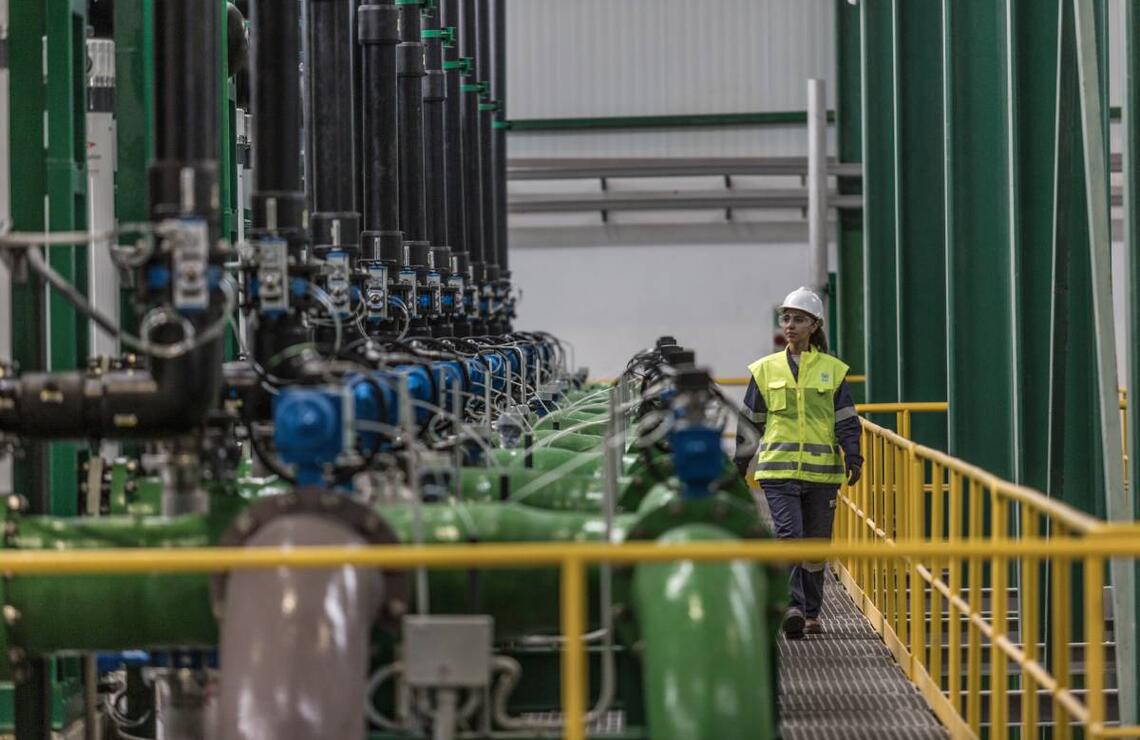
OCP, a model of transparency and leadership in environmental and social responsibility
This Moroccan company, number one worldwide in plant nutrition solutions and phosphate fertilisers, is investing in compliance with ESG criteria with a sustainable development strategy that is a priority for Africa.
Faced with relentless and ever-more violent climate change crises, in a world where environmental and social imperatives are becoming more urgent by the day, businesses have a vital role to play in the collective effort. This means committing to sustainable development strategies and responsible investment policies. These are known as ESG (environmental, social and governance) criteria. Environmental criteria include the reduction of greenhouse gas emissions, the implementation of a downstream waste management policy, and upstream consideration of environmental risks. Social criteria cover, among other things, the prevention of workplace accidents, staff training, upholding employee rights, social dialogue and subcontractor (supply chain) participation. Lastly, Governance criteria relate to management, financial transparency and high-level integration of ESG decisions within the company.
Setting objectives and honouring commitments have become key to assessing a major company. Companies' extra-financial assessments, and the commitments and actions undertaken in terms of ESG criteria, are now measured by independent, recognised bodies such as Sustainalytics, WBA (World Benchmarking Alliance) and CDP.
As a Moroccan, African and international company, OCP Group is determined to take action in this crucial aspect of its activities. And as the world leader in plant nutrition and phosphate fertiliser production, the Group launched consultations in 2018 in order to be able to strengthen its position in terms of sustainable development. Significant efforts have been made to precisely quantify the company's sustainability, human rights and ethics performance, the fight against climate change, and commitments to community development and human capital. In total, more than fifty documents are now available online in the sustainability section of the Group's website, with the sustainable development report as a reference. And the company has set a particularly ambitious strategic goal: to be carbon neutral by 2040, a decade ahead of the Paris Agreement.
The rankings confirm the company's efforts. Sustainalytics ranks OCP number 1 out of 86 companies in the agrochemicals category, with an ESG risk score that has improved from 23.6 to 14.4 (medium to low risk). The Carbon Disclosure Project (CDP) ranks OCP among the leading climate action companies, putting it in the top quarter (24%) of companies in its sector, reaching ‘leadership level’. The World Benchmarking Alliance (WBA) ranks OCP Group fourth out of a total of 350 companies in the Agriculture and Food category, just behind European multinationals Unilever, Nestlé and Danone. Lastly, IMACID (Indo Maroc Phosphores SA, a joint venture between the OCP Group and India's CFCL and Tata Chemicals) won the first Green Leaf Award, presented by the IFA (International Fertilizer Association) in recognition of its initiatives in health, safety and environmental practices.
OCP's achievement of these objectives in the space of just a few years demonstrates that combining economic performance with ESG achievements is perfectly feasible for companies. It's a transformation that offers an inspiring model for other African companies wishing to follow suit. For Africa, the energy transition, food sovereignty, sustainable agriculture and social responsibility are crucial issues.